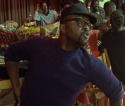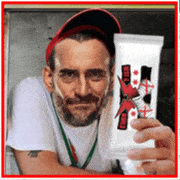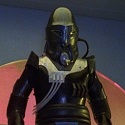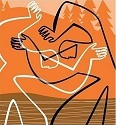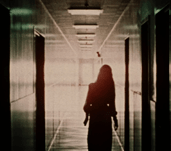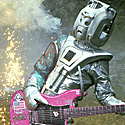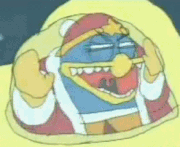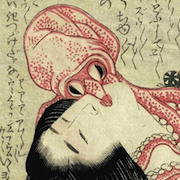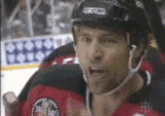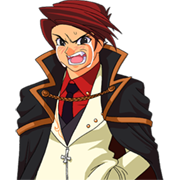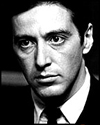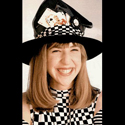|
Hollismason posted:The scene where Bigfoot is eating the frozen banana or rather, obviously fellating the chocolate frozen banana and Doc is just staring at him had me in stitches. Yes, god dammit. The gag he did just about killed me.
|
|
|
|

|
| # ? Apr 30, 2024 09:30 |
|
DetoxP posted:
I would disagree really. I don't think the movie is about the hippie "age" at all, it was just the setting. There are no long drawn out monologues like in fear in loathing about how they are in a special time or thought they were, or were actively trying to subvert the status quo. The movie specifically states what inherent vice is, how things just tend to break on ships. America is the ship, and doc, bigfoot, and owen wilson are all generally good men that were broken on it. The whole idea is just that money and power are always evil forces, not always unified which is shown by the many different factions all trying to get their hands on wolfmann, the lapd, the fbi, the golden fang, etc. They do however unify when it comes down to suppressing the masses, like at the end at dinner when the lawyer dude says you lost my respect when you paid rent. The renting class will always be the victim no matter the age or the setting, and this is what breaks good men.
|
|
|
|
IMB posted:Yes, god dammit. The gag he did just about killed me. I'm pretty sure that was a Chocolate popsicle, which is even funnier.
|
|
|
|
Uncle Boogeyman posted:i actually thought to myself at one point that this was kind of like a good version of American Hustle. Man I liked American Hustle well enough but jesus it dragged. Is this a faster paced version of that? I loving hate Pynchon but since it's a looser book and it's PT Anderson with Phoenix, I'm still down for it.
|
|
|
|
MinibarMatchman posted:Man I liked American Hustle well enough but jesus it dragged. Is this a faster paced version of that? I loving hate Pynchon but since it's a looser book and it's PT Anderson with Phoenix, I'm still down for it. i'm not sure i'd describe Inherent Vice as "faster paced" than much of anything really, but it's a lot more interesting
|
|
|
|
dtkozl posted:I would disagree really. I don't think the movie is about the hippie "age" at all, it was just the setting. There are no long drawn out monologues like in fear in loathing about how they are in a special time or thought they were, or were actively trying to subvert the status quo. The movie specifically states what inherent vice is, how things just tend to break on ships. America is the ship, and doc, bigfoot, and owen wilson are all generally good men that were broken on it. The whole idea is just that money and power are always evil forces, not always unified which is shown by the many different factions all trying to get their hands on wolfmann, the lapd, the fbi, the golden fang, etc. They do however unify when it comes down to suppressing the masses, like at the end at dinner when the lawyer dude says you lost my respect when you paid rent. The renting class will always be the victim no matter the age or the setting, and this is what breaks good men. Also like Fear & Loathing it's about the failure and death of the hippie movement and revolutions. Except Fear & Loathing paints the failure as a result of the hippies themselves and that Nixon's Silent Majority simply kept moving forward and growing more powerful as if they didn't even exist (Duke in Vegas, getting a glimpse of what mainstream America is really like, and how Duke is basically just an oddity or a curio for them to glance at as they continue to go about their lives). Inherent Vice depicts the failure as a result of actual conspiracies, government suppression. Notice how with all the drugs everybody's doing no one ever gets picked up or arrested for them (actually, in the book, Puck Beaverton is the one character who gets arrested for drugs, and it's on a bullshit charge about finding a marijuana seed in his vacuum cleaner bag. More as a way to get rid of him than it is as punishment for possession). The drugs keep the hippies from ever truly mobilizing, which is how the government wants it. When a billionaire land developer starts "going hippie" is when the government steps in and puts a stop to it. The status quo must be maintained. With all this fear of cults and Manson, the worst cult of all is the FBI. They induct actors by blacklisting them and then turning them "straight" by putting them in anti-communist propaganda films. They abduct capitalists with regrets and brainwash them. And this is what Doc saves Coy from. Coy was brought in as a mole, he was inducted by the cult of the mainstream, and Doc buys him his freedom. The fact is, that it is about the hippie age. But it's about revolutions in general. And revolutions have an inherent vice in them. They're almost destined to fall apart. To drugs, to in-fighting. "You lost my respect the moment you paid rent." That's inherent vice.
|
|
|
|
Hmmm, I like that.
|
|
|
|
Inherent Vice is not really like American Hustle at all besides having something to say about (70's) America. And great costumes.
|
|
|
|
TrixRabbi posted:Also like Fear & Loathing it's about the failure and death of the hippie movement and revolutions. Except Fear & Loathing paints the failure as a result of the hippies themselves and that Nixon's Silent Majority simply kept moving forward and growing more powerful as if they didn't even exist (Duke in Vegas, getting a glimpse of what mainstream America is really like, and how Duke is basically just an oddity or a curio for them to glance at as they continue to go about their lives). Yeah that is sorta my point. There is nothing unique to the hippie age in this story, it is just another failed revolution and there were ones before and there will be ones after.
|
|
|
|
If you ignore all of the specificity of it, sure.
|
|
|
|
dtkozl posted:Yeah that is sorta my point. There is nothing unique to the hippie age in this story, it is just another failed revolution and there were ones before and there will be ones after. Just because it's universal doesn't mean it isn't also directly about the sixties. And also, I may be going a bit off the book here, but all the specific references to Nixon and then-Governor Reagan. The sheer dedication to building an authentic atmosphere for this very specific year (1970). In order to understand our own time, and all the times in between, we have to look to the sixties (just as the sixties have to look to the fifties and so on and so on). Pynchon and Anderson are pointing to this era, and really this particular year, and saying: Look. This is what has been going on forever. This is one specific example of it happening. The "straights" in this story are the ones who elected Nixon, and they went on to elect Reagan. The government squashed the hippies, they squashed the Black Panthers. The hippies gave way to the yuppies and they all either went straight or OD'd. It's a good companion to Fear & Loathing. F&L was written in 1971, and Thompson reported what he saw and felt. Inherent Vice takes a look back and tells us what we know now. What the real takeaway from that time was.
|
|
|
|
If nothing else, the setting is what it is because it's what Pynchon lived through. There's a degree of separation due to the movie being an adaptation, but it still applies.
|
|
|
|
HUNDU THE BEAST GOD posted:The comparison to Lebowski and The Long Goodbye are well considered. I got "Long Goodbye" vibes through a lot of the film, which is both good because TLG is one of the best films ever but also bad because making me compare your film to TLG is almost certainly not going to turn out well. I did catch myself during the last 1/3 of the film wishing that I was watching TLG instead (there's a scene in IV with a bunch of semi-clothed women running by that reminded me of Elliot Gould's neighbours).  The Lebowski comparison is also apt more because this movie is a hippy movie. If anything, Inherent Vice is truer to the hippy attitude than Lebowski because Lebowski is about a hippy while Inherent Vice is all filtered through hippy attitudes. My biggest problem with the film was this hippy feel, because I've never been down with the whole "whatever you do is ok so long as its your thing" kind of attitude, although I can at least respect it. I just wish for more of a reward at the end. I am with you too Hundu in believing that people here who are comparing this film to American Hustle are on crack or something. I can't see the connection there at all.
|
|
|
|
Just for starters, Inherent Vice is good in the first place and American Dumbass Hustle is not. I think it compares quite favorably to both Lebowski and The Long Goodbye, but I am a much bigger Joaquin fan than I am an Elliot Gould fan.
|
|
|
|
They form a nice little trilogy.
|
|
|
|
I forgot how badass the then unknown Arnie with the mustache looked.
|
|
|
|
HUNDU THE BEAST GOD posted:I forgot how badass the then unknown Arnie with the mustache looked. I had no idea he was in it when I watched it. Still one of the best surprises of any movie I've seen.
|
|
|
|
I'm wrong, at the time he would've been well known as Mister drat Universe.
|
|
|
|
HUNDU THE BEAST GOD posted:I'm wrong, at the time he would've been well known as Mister drat Universe. He had already done Hercules in New York at that point.
|
|
|
|
I blind watched this on a whim today. I thought it was pretty drat good. It felt like a slightly longer episode of The Rockford Files with an injection of The Big Leboski. I'll have to read the book now.
|
|
|
|
Just got back from this and I loved it. I will say that even as someone who read the book, the last quarter of the movie felt a little convoluted. It just needs the breathing room that a novel affords once everything starts to fall into place and all the minor characters start getting rapid-fire namedropped. Still, it feels about as approachable as you could get with Pynchon. Joaquin knocks it out of the park, and I honestly think his performance is one of the best bits of physical comedy I've seen in a long, long time. Josh Brolin also steals every scene he's in. I've never been a huge fan of his, but drat if he wasn't great here. I was tearing up with laughter at the scene with Doc jumping on his car and the bit where Bigfoot eats all the weed.
|
|
|
|
Was wondering what Maya Rudolph was doing in this film in such a small part, looked it up and discovered she and PTA are married This was maybe even a trickier, more challenging work than The Master, comedy aside. It was a fun watch but I feel like I wanna pick it apart to see if it makes any goddamn sense at all. Starting with rereading the book, which also largely went over my head. e: the most perfect bit of casting had to be Denis. Not all that important a character but rarely do I get that uncanny "stepped right out of the novel" vibe like with him. The Time Dissolver fucked around with this message at 07:08 on Jan 14, 2015 |
|
|
|
The Time Dissolver posted:Was wondering what Maya Rudolph was doing in this film in such a small part, looked it up and discovered she and PTA are married Heh heh, yeah...and her mom is Minnie Riperton, a famous soul singer ('Lovin you', 'Inside My Love') with uncanny vocal pitch who died from breast cancer at 31. Riperton happens to have a song on the Inherent Vice soundtrack called 'Les Fleur'
|
|
|
|
Edit: Nevermind,
|
|
|
|
TrixRabbi posted:Just because it's universal doesn't mean it isn't also directly about the sixties. And also, I may be going a bit off the book here, but all the specific references to Nixon and then-Governor Reagan. The sheer dedication to building an authentic atmosphere for this very specific year (1970). In order to understand our own time, and all the times in between, we have to look to the sixties (just as the sixties have to look to the fifties and so on and so on). Pynchon and Anderson are pointing to this era, and really this particular year, and saying: Look. This is what has been going on forever. This is one specific example of it happening. The "straights" in this story are the ones who elected Nixon, and they went on to elect Reagan. The government squashed the hippies, they squashed the Black Panthers. The hippies gave way to the yuppies and they all either went straight or OD'd. I think this is right. In the Q&A PTA talked about how most of Pynchon's books are about turning points, this being one of them (I think that point is accurate, BTW). The drugs play a role; the switch from the benign marijuana to malignant heroin plays an important role, and that is one of the reasons the revolution fails. I need to see it again but I loved it. It may have been the circumstances, though.
|
|
|
|
TrixRabbi posted:Just because it's universal doesn't mean it isn't also directly about the sixties. And also, I may be going a bit off the book here, but all the specific references to Nixon and then-Governor Reagan. The sheer dedication to building an authentic atmosphere for this very specific year (1970). In order to understand our own time, and all the times in between, we have to look to the sixties (just as the sixties have to look to the fifties and so on and so on). Pynchon and Anderson are pointing to this era, and really this particular year, and saying: Look. This is what has been going on forever. This is one specific example of it happening. The "straights" in this story are the ones who elected Nixon, and they went on to elect Reagan. The government squashed the hippies, they squashed the Black Panthers. The hippies gave way to the yuppies and they all either went straight or OD'd. When I read the book, I viewed it as specifically a companion to the waves speech. The "high water mark" broke and fell back because the culture that pushed it contained an inherent vice insuring it's own failure. The sad truth is the hippies were never going to win. Which is one of the things I liked about it, that Pynchon isn't blinded by nostalgia. It's an honest book in that way.
|
|
|
|
Finally got around to seeing this and really enjoyed it. Something that helped was the advice to not worry about what was going on so I didn't try to hang on to names or plot points, which was mostly fine except for a couple scenes where it's nothing but names and plot points. I laughed a lot, I think there was at least one good, isolated laugh in almost every scene, which was really interesting because the funny thing was just like a little spike on top of the rest of the scene (SOMETHING SPANISH). There were a couple moments I kinda tuned out or wished the movie would get along to something else but it was worth it for the high stuff, like the Martin Short scene (he's amazingly good in this) or the whole sequence at the rehab facility, which is one of the best things Anderson's done, up there with the New Year's scene in Boogie Nights or the He Needs Me montage in Punch-Drunk Love, that kind of dizzying, alcoholic feeling where the movie comes off the screen and absorbs all sense of time. I think I felt the movie more than I watched it. edit: "F U C K I N G-ing" "...'fuckinging'?" Magic Hate Ball fucked around with this message at 06:31 on Jan 16, 2015 |
|
|
|
Went and saw this last night, it's still sort of sinking in but my response was positive. Admittedly, this is the first PTA movie I've seen in quite a while. I watched Magnolia shortly after The Master was released and I think that's the last time I saw one. I wanted to go into this movie with fresh eyes - seeing The Master right before Magnolia (for the first time) sort of colored my interpretation of Magnolia undesirably and I wanted to avoid that. Like most people I'd heard that this movie was a little hard to follow, so like Magic Hate Ball I tried to avoid getting too hung up on the plot and instead focused on the characters in the scenes and the action, which I think helped a lot. The movie looked great, although I felt like it was shot extremely intimately. Lots of scenes, especially at the beginning (that I noticed), were long zooms on one character or long close-ups. The one that sticks in my mind is at the pizza place, Doc is having a conversation with the narrator character (her name escapes me), and the whole scene just slowly zooms in on her. I thought the way the movie was shot was very effective, in that in most scenes it really served to draw your attention to the conversations happening and the dialogue is extremely important in this film. I get a little too cerebral when I watch PTA movies so I eventually just let this go and started enjoying the movie instead of thinking about the way it was shot. I won't try to make any grand statements about what I thought this movie was trying to say because I don't really know much about the politics of late 60s/early 70s counterculture or the death of that movement. Heroin really seems to have hosed everything up. I thought one of the funniest things about this movie was the portrayal of police. The scene where Doc is at Wolfmann's mansion and his wife is throwing the party, and there are cops wearing their loving CHIPS style helmets while swimming and grilling hot dogs was one of my favorites. The climax of the movie for me was when Shasta finally comes back. While it doesn't really have heavy influence on the Golden Fang plot, it's Doc's most personal and intense scene, and provides a lot of insight into Shasta, who Doc still loves. It was probably also my favorite scene in the movie. The monologue and long, long shot were extremely effective. I felt the same discomfort and frustration that Doc felt in that scene (well, almost) and I just thought it was great. I thought that scene, the dentist scene, and the rehab center scenes were all genius. Josh Brolin in this movie, holy gently caress he was great. I thought he stole every scene he was in - "MOLTO PANCAKU!" Overall I felt like I kept up with the plot well enough to know what was going on. I think there are a fair amount of details that would be more clear on a second watch, but there are some things that are bugging me: The links between Golden Fang, Puck Beaverton, and Adrian Prussia are still confusing to me. Was Adrian Prussia mentioned earlier in the movie and I just missed it? He seemed to show up super late. Who killed Glen Charlock and why?
|
|
|
|
Saw this a couple of nights ago at the AFI, and... well, it was kind of a mistake. That isn't to say I thought it was bad (it's really well done), or that I didn't enjoy myself (I very much did), but it just felt like I missed a lot of details I might have missed, having not read the book at all. I'm going to have to see it again, with the benefit of a pause and rewind button. (And subtitles; Phoenix was great, but he mumbles, drat it!) But my overall impression is that it's a fascinating experience in which everything (director, writer, actors, soundtrack, cin-tog, etc) contributed positively to the overall picture, which while I cannot confirm is Pynchon-ian, was a drat treat to watch. In the meantime, perhaps I will track down the book, as reading Pynchon has been something I've had on my to-do list for a while. Unless there's another of his works that might be better for a first timer?...
|
|
|
|
Seaniqua posted:The scene where Doc is at Wolfmann's mansion and his wife is throwing the party, and there are cops wearing their loving CHIPS style helmets while swimming and grilling hot dogs was one of my favorites. For some reason the bit right before that where the server girl brings in a bunch of drinks and shoves her rear end in Doc's face, muffling his voice, had me laughing for like five minutes.
|
|
|
|
resurgam40 posted:Saw this a couple of nights ago at the AFI, and... well, it was kind of a mistake. That isn't to say I thought it was bad (it's really well done), or that I didn't enjoy myself (I very much did), but it just felt like I missed a lot of details I might have missed, having not read the book at all. I'm going to have to see it again, with the benefit of a pause and rewind button. (And subtitles; Phoenix was great, but he mumbles, drat it!) But my overall impression is that it's a fascinating experience in which everything (director, writer, actors, soundtrack, cin-tog, etc) contributed positively to the overall picture, which while I cannot confirm is Pynchon-ian, was a drat treat to watch. Inherent Vice is his most accessible book. It has the most coherent plot. He's not really known for coherent plots.
|
|
|
|
I tried to read Gravity's Rainbow in high school (to prove how cool I was) and all I remember is a bunch of people living in a blown-up building filled with banana trees and the main character diving into a toilet to retrieve a harmonica.
|
|
|
|
Yeah I can tell I'm gonna have trouble with this movie without subtitles. I don't know that it's mainstream enough to have any cinema releases that would include them, though. (UK here, still got another two weeks to wait)
|
|
|
|
I thought it was fairly bad. The plot seemed almost irrelevant, the audio was mumbly and hard to follow, the whole thing was hard to follow, really. Apparently that was the point, but I don't think that makes for much of a movie. I'll try to watch it again in a month or so but my first impression was that it was very random. Along with the similarly garbled 'The Master', so far not digging the PTA-Joaquin collaborations. PTA gave an interview recently where he seemed to think that he had already done his best work. I hope that's not the case, as I am a massive fan of his pre 'The Master' films.
|
|
|
|
Whoever said that this movie felt like they took the first take from every scene was right: I couldn't understand about half of Phoenix's dialogue. I feel like this movie could have been pretty good had the editing been tighter. There are a few scenes that are genuinely great, such as the dentist's office (as well as the following driving scene) and the shoot out, but for the most part it felt like a lame Chandler's Philip Marlowe/ The Big Lebowski without any of the charm
|
|
|
|
The Master was amazing. I'd even place it above There Will Be Blood in terms of filming technique and acting spectacle, (maybe not mood) and TWBB was my favorite film of 2000-10 decade. I don't know another director that can so accurately recreate explicit lighting conditions from different periods of the 20th century. Inherent Vice does it, too. The shots of Shasta in the first part of the film have that grainy, deepwarm shadows appearance of so many 70s color films, or like 70s Playboy photography, never properly duplicated with later iterations of film technology that reached for ever-sharper images and more intense contrast. I think PTA's career arc since Punch Drunk Love (his turning point) has been astounding. He has the golden touch.
|
|
|
|
I think my favorite/the funniest part of this movie might be during the scene where Bigfoot eats Doc's weed, a single tear rolls down his cheek as he watches.
|
|
|
|
Coffee And Pie posted:I think my favorite/the funniest part of this movie might be during the scene where Bigfoot eats Doc's weed, a single tear rolls down his cheek as he watches. Yeah I couldn't really decide if that was a profound sense of sympathy for Bigfoot and his emotionally crippling need for power or if he was just sad his weed got ate up.
|
|
|
|
Coffee And Pie posted:I think my favorite/the funniest part of this movie might be during the scene where Bigfoot eats Doc's weed, a single tear rolls down his cheek as he watches. "I might not be your brother, but you sure need a keeper."
|
|
|
|

|
| # ? Apr 30, 2024 09:30 |
|
second-hand smegma posted:The other scene that made me really uncomfortable was the telephone conversation with Bigfoot's utterly dominating wife, which I initially laughed at and then slowly became freaked out because I know people like that. The thing about that whole scene is it raised the possibility that the whole nature of the Bigfoot character was more or less a figment of Doc's creation. I wasn't sure if Bigfoot was a mentally ill cop on leave and manifested himself ala Tyler Durden to Doc. That last scene with Bigfoot didn't help our trust in the validity of the narrator.
|
|
|




